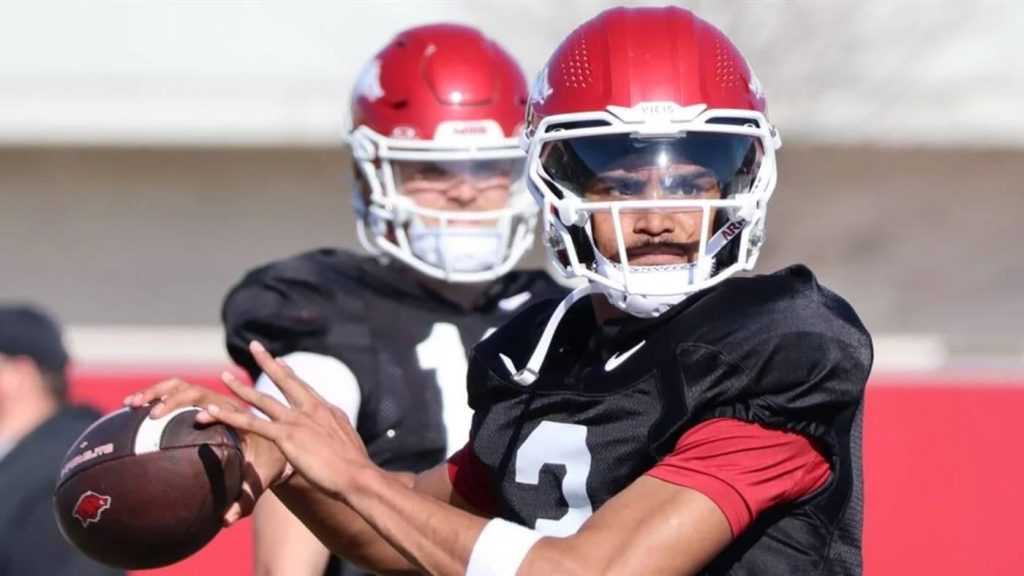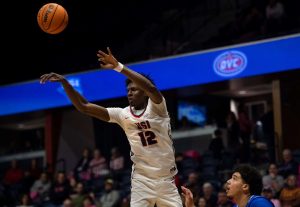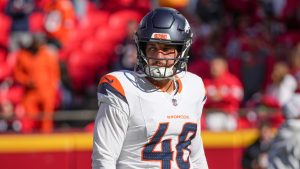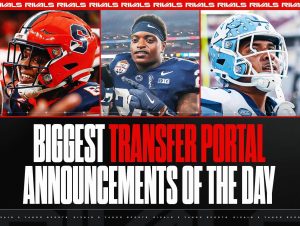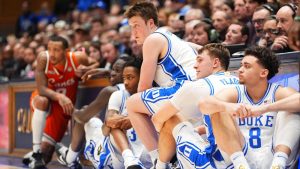Nico Iamaleava’s brother may find himself at the forefront of a high-stakes battle over binding NIL contracts
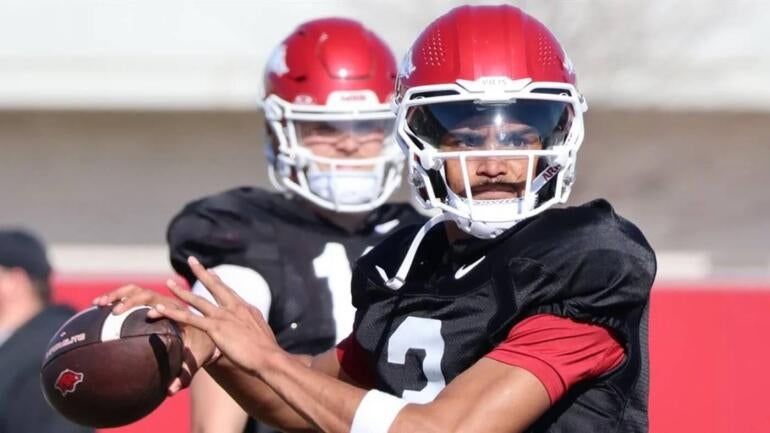
Two hours after quarterback Madden Iamaleava entered the transfer portal Tuesday, Arkansas athletics director Hunter Yurachek rattled his saber.
It didn’t matter whether the statement was directed at the brother of superstar Nico Iamaleava, because the message was clear: pay your NIL buyout or face legal action.
Players enrolled at schools across the country in January and cashed NIL checks, only to enter the transfer portal and leave the school in the spring before ever playing in a game. At schools like Arkansas, buyout language in NIL deals is now common. Though the NIL era is only a few years old, players reneging on deals may soon lead to legal battles pitting schools against athletes.
“I have spoken with the leadership team at Arkansas Edge and expressed my support in their pursuit to enforce their rights under any agreement violated by our student-athletes moving forward,” Yurachek said on social media. “We appreciate Edge’s investment in our student-athletes and acknowledge the enforcement of these agreements is vital in our new world of college athletics.
“We look forward to continued dialogue with all parties resolving these matters.”
Hundreds of players have ignored buyout language in their NIL contracts as all parties await revenue sharing tied to the House v. NCAA settlement — expected to take effect on July 1. The question of whether these NIL contracts are legal has sparked debate in legal circles.
If schools are expected to honor NIL contracts, shouldn’t the same standard apply to players?
In the past, programs were reluctant to pursue legal remedies due to negative headlines, but multiple schools and collectives are now exploring legal action against players who do not honor their contracts, sources in the NIL industry told CBS Sports on Tuesday.
Every circumstance is different, but the saga of the Brothers Iamaleava has muddied the canvas. Earlier this month, Nico became the first high-profile player to hold out of team activities amid a contract dispute. Hours later, Tennessee moved on from its starting quarterback, who led the Vols to the College Football Playoff.
One day after Nico signed with UCLA, Madden informed Arkansas coaches he was homesick and wanted to enter the portal, a person familiar with the decision told CBS Sports. The Iamaleava family, including Nico, visited Madden in Fayetteville over the weekend to watch the Razorbacks’ spring game, which was canceled due to severe weather.
Madden’s recruiting story might not be as dramatic as his older brother’s NIL negotiations and subsequent departure from Tennessee, but it did spark national interest as he left Arkansas — intending to follow his sibling to UCLA — before ever playing In a game for the Razorbacks.
Madden initially committed to UCLA in May 2024 but flipped to Arkansas in a surprise announcement on National Signing Day in December. He agreed to a one-year NIL deal with the Arkansas Edge collective, a source said. Payouts for quarterbacks of his stature — a four-star prospect in 247Sports rankings — fetched close to $500,000 during the winter signing period, industry sources told CBS Sports.
Contracts at Arkansas commonly include language requiring players to reimburse 50% of the money remaining on their deal should they leave for another school, according to documents reviewed by CBS Sports. Madden Iamaleava had roughly eight months remaining on his contract, meaning the collective expects a six-figure buyout.
One NIL contract dispute will not bankrupt a multi-million-dollar NIL collective, but multiple players departing without paying buyouts could erode the school’s negotiating power with future players. Arkansas leads the SEC with 34 players transferring out of the program since December.
Meanwhile, tampering continues to be a problem across college football. Players not in the portal are contacted daily to gauge their interest in other schools before the spring window closes this weekend.
The state of Arkansas’ NIL laws have been relatively aggressive in recent years, with multiple amendments as the state tries to help its flagship university evolve with the changing college sports landscape. In a 2023 amendment, the Arkansas Publicity Rights Act gave the University of Arkansas the power to sue agents, coaches and other third parties who “give or promise compensation” for the use of a player’s NIL if that player has already signed an enrollment contract at a university in Arkansas.
Arkansas has not yet pursued such a case, but now that Yurachek is speaking up on improprieties, nothing seems off the table.
